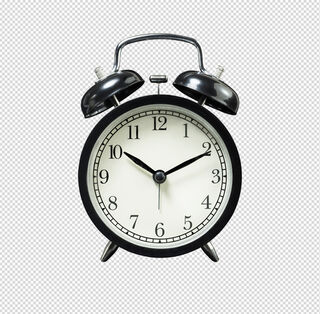Sleep
Two Kinds of Jet Lag: Wake Up Early or Sleep Late
As international business travel resumes, jet lag is back.
Posted April 28, 2022 Reviewed by Lybi Ma
Key points
- Jet lag differs depending on whether your back-home bedtime corresponds earlier or later than the new location's.
- The two types can be called wake-up-early and sleep-late jet lag.
- Strategies for recovering from jet lag are different depending on which type you face.

Now that international travel is resuming, many psychologists and others will find business reasons to make long-distance trips. I myself have recently been able to re-acquaint myself with jet lag, which had been a regular feature of my life prior to the lockdown. This post is in the spirit of sharing experiences and lessons for general benefit.
There are two different kinds of jet lag. In abstract theory, they pose the same problem: changing your body’s normal time rhythms to fit the new place’s schedule. In practice, they are very different.
To understand the difference, imagine you made a long trip to a conference. You are in your hotel room at 6 pm. Meanwhile, back at home, it is either noon or midnight. That’s a six-hour difference in either direction. The direction matters and you deal with them differently.
I think of the two kinds of jet lag as the wake-up-early kind and the sleep-late kind.
If you hadn’t traveled, you’d be asleep at your usual time, and when does that fall in the new time zone? The core issue: When does your body normally expect to be sleeping? Sleep takes up roughly a third of a 24-hour day, ideally the night hours. Now it has to shift, so does your body’s familiar sleep time occur during the new location’s morning, or evening?
If your body wants to be sleeping during what’s now the evening, it will be ready to wake up long before the night is over. Hence the ‘wake-up-early’ name. At maybe 4 am you’re wide awake and pretty well rested and so might as well get up, have breakfast, start the email, or whatever. Adjusting to the wake-up-early kind can be a pleasure because it requires sleeping in an extra hour or so for several days in a row. Who among us doesn’t love that? The only cost is going to bed a bit early for a couple of nights.
There is some evidence that the average person’s biological clock is around 25 hours. That makes it easy to sleep later each day.
Another quirk of the wake-up-early kind is that you’re likely to be hungry for a big breakfast. Your appetites are part of your biological clock, and if morning in the new place corresponds to afternoon or evening back home, then your body thinks you’ve gone most of the day with no food. (Your dinner appetite will likely be less, however, so eat more at breakfast and lunch, less at dinner.)
For me and many others, the sleep-late kind of jet lag is the bigger problem and the more difficult adjustment. The sleep-late kind means you’re ready to go to bed when you now need to be getting up, such as for the morning meetings. This itself creates multiple problems. Obviously, getting yourself up and going when your body expects you to be lying down and going to sleep is literally a cruel awakening. (And you won’t be hungry for breakfast.) There are two main ways of dealing with this. One is: Get up and jog or even just walk outdoors in the brightest sunshine you can find. That lets the body know that this is daytime and hence time to be awake.
The other is biochemical-psychopharmacological intervention, also known as ‘coffee’. Actually, of course, the operative drug is caffeine, and it can be gotten multiple ways, coffee, tea, cola, pills. Other stimulants can also work. For a while, I had a prescription for NuVigil, recommended to me by another veteran international traveler. I haven’t done this in some years because I’m getting too old for that kind of thing, but I loved it. It’s best if you have a full day to recover from jet lag without external duties. Prescription stimulants get you awake early. They also narrow the focus of attention. If you can work all day, preferably without external interruptions, on some very interesting and or important project, you can make a lot of progress. I would take half in the morning and decide around 11 am whether to take the other half. No more stimulants of any kind (even diet coke) at any point later in the day, if you want to have a good sleep. Maybe try to get some physical exercise, at least a 20-minute walk, later in the day, when the meds start to wear off and your brain refuses to work on that project anymore.
I’ve been told some of the ADHD drugs work similarly. The point is to jolt your body into the new schedule, alert and work hard by mid-morning, and get tired as evening comes on. Then of course melatonin at bedtime. I sometimes take a second dose of melatonin if I wake up before 4 am and have trouble getting back to sleep. For me and I think many others, melatonin helps you fall asleep soon but doesn’t have much effect at the far end of the sleep.
That brings up the other problem associated with the sleep-too-late kind. Go back to the example of being in your conference hotel at 6 pm, depending on whether home for you is at that moment noon or midnight. Suppose you normally go to sleep at 10. In your hotel, then, 10 corresponds to either 4 am or 4 pm. Getting your body to agree to fall asleep should be easy if it thinks it’s already way past its normal bedtime and approaching 4 in the morning, sleep is expected. But your body will resist the idea that it’s time to go to sleep if it thinks it’s in the afternoon.
The standard advice for getting your body to accept falling asleep in what it thinks is the afternoon is to stretch the first day. For example, when you fly from the US to Europe, you land in the morning while your body is ready to go to bed. Try to stay awake until at least 9 pm. You should be really tired by then.
Inevitably one will sooner or later have some of the 2 am wide-awakes. Just have something ready to do, like a novel to read, and continue until you find yourself yawning, then go back to sleep.
References
Aschoff, J, Gerecke U, and Wever, R. (1967). Desynchronization of Human Circadian Rhythms, The Japanese Journal of Physiology, 17, 450-457
The effect of jet lag on the human brain: A neuroimaging study. Human Brain Mapping. 2020
ASCHOFF,J. (1965). Circadian rhythms in man. Science 148:1427-1432 . https://www.jstor.org/stable/pdf/1716536.pdf?casa_token=G4xdxu_T8UUAAAA…




